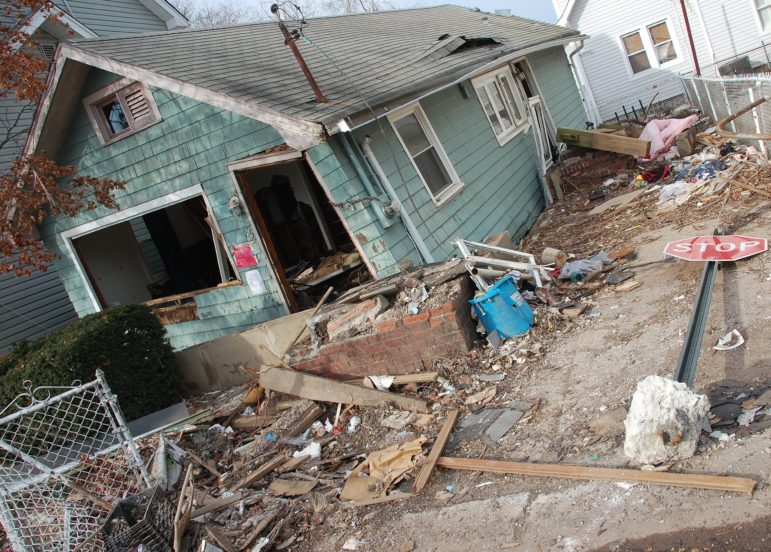
Thomas Good
Damage from Hurricane Sandy in Staten Island.New York City has learned over the past 20 years that disasters come in many different shapes and sizes, from hijacked airplanes to storm surges to viruses.
New Yorkers have also seen that the impacts of disasters can emerge years later and in unexpected ways—like the Ground Zero workers felled years later by illnesses they contracted while working on the pile.
And we’ve all realized you don’t need to have a physical injury or illness to be hurt by these events: Mental-health impacts like depression and PTSD can affect anyone.
Climate change is likely to make weather disasters—heat waves, coastal storms and floods—more common and, possibly, more intense. The mental-health challenges created by those disasters could multiply and intensify in line with the events themselves, but that aspect of disaster planning is poorly understood and rarely talked about.
That’s why City Limits is teaming up with the Center for Public Integrity, Columbia Journalism Investigations and newsrooms around the country to conduct a survey of the mental-health impacts New Yorkers have felt from climate disasters like Superstorm Sandy, Hurricane Maria and more. The survey also explores the resources people have found—or not found—to navigate those problems.
The purpose is to find out how deep these issues run and to identify gaps in the mental-healthcare system that might be plugged before disaster next strikes. The survey takes about 15 minutes and is confidential. You can decide whether to let reporters contact you or not.
Please start below.








